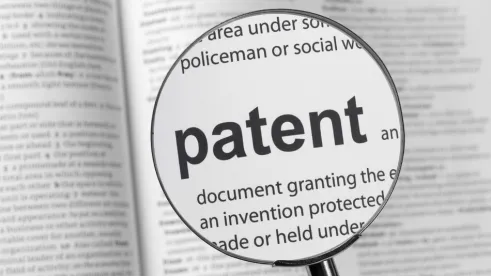Addressing whether the Patent Trial and Appeal Board (PTAB) is permitted to excuse an inter partes review (IPR) petitioner’s late identification of additional real-parties-in-interest (RPIs), the US Court of Appeals for the Federal Circuit held that there was no reversible error since the PTAB properly applied its rules in allowing the late action. Mayne Pharma Int’l Pty. Ltd. v. Merck Sharp & Dohme Corp., Case No. 18-1593 (Fed. Cir. June 21, 2019) (Lourie, J). Because the Federal Circuit found no error, it declined to squarely address the appealability of this issue.
When Merck Sharp & Dohme Corp. (MSD) filed its IPR petition, it did not name its parent company, Merck & Co. (MCI), as an RPI, even though MCI had also been sued in the district court for patent infringement. Mayne Pharma International argued in its preliminary and patent owner responses that MCI should have been listed as an RPI. Initially, the PTAB disagreed with Mayne, but after institution, and on a more fully developed record, the PTAB changed its position. It then permitted MSD to amend its list of RPIs to add MCI. Mayne argued that this late identification of a new RPI meant that the petition must be accorded a new filing date because the petition was not “complete” until MCI had been added as an RPI. Because this date would be more than one year after MCI had been served with an infringement complaint, Mayne argued that the petition was time-barred under § 315(b).
The PTAB disagreed and permitted MSD to update its mandatory RPI notice without affecting the petition’s filing date. It did so using the “late action” rule of 37 CFR § 42.5(c)(3) that allows the PTAB to excuse late action “on a showing of good cause or upon a Board decision that consideration on the merits would be in the interests of justice.” After the final written decision, Mayne appealed the PTAB’s failure to find the petition time-barred.
On appeal, Mayne framed the issue as a time-bar under § 315(b). In contrast, the PTAB and MSD argued that the issue was more appropriately framed as a non-appealable decision to institute, focusing on whether the petition complies with § 312(a)(2). The Federal Circuit declined to address the appealability of this issue, careful to avoid characterizing such rules as jurisdictional when Congress had not. Instead, it found that the issue need not be decided because, in this case, the PTAB had not committed reversible error in deciding to excuse MSD’s late action.
Deferring to the PTAB’s interpretation of its rules, the Federal Circuit noted that the PTAB relied on the “interests of justice” language in § 42.5(c)(3) for excusing the late action. The Court found no error in applying this rule given the mandate in § 42.1 (b) that the rules be “construed to secure the just, speedy, and inexpensive resolution of every proceeding,” and the PTAB’s findings that there was no indication of MSD’s intentional concealment, bad faith, attempt to circumvent the estoppel rules, or attempt to gain other material benefit from its delay in naming MCI as an RPI. The Court rejected Mayne’s argument that § 42.104(c) provides the sole means to correct a petition, as the US Patent and Trademark Office had indicated in statements made during notice and comment rule making. The Court found that its practice had since changed, and a series of PTAB decisions showed that the PTAB had discretion to allow a petitioner to update its RPI disclosures without vacating the petition’s filing date. Accordingly, the Court found no error in the PTAB’s application of its rules to allow identification of an additional RPI without affecting the petition’s filing date.



 />i
/>i

